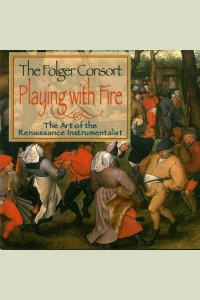Honorée Fanonne Jeffers’ Age of Phillis: Jeffers has written what we wish Phillis [Wheatley] had, a book length verse autobiography. The opening sequence very moving: imagined to be by Phillis’s mother when she realizes her baby has been stolen from her. Remembering the birth. Then the narrator on behalf of Phillis remembering the terror the child must have felt, the filth, vermin, disease,chains — unimaginable except by just citing facts that are known — of the middle passage. How she survived our narrator cannot say — she was purchased in the US not in Africa … [I read this a couple of poems at a time each night]
Dear friends,
It’s been a month since I last wrote. I haven’t had much to report about myself new or striking, anything different from what you might read elsewhere; I’ve been writing about the movies I’ve seen, books I’ve read, online activities with others (discussing books mostly) on my other two wordpress blogs; politics I’ve been circulating Heather Cox Richardson’s newsletters and occasional insightful essays that might be overlooked on my livejournal blog or facebook/twitter. We passed the anniversary of the day we consciously began to self-isolate (March 13th). It was that week that the class I was to teach that spring, “The Novels of E.M. Forster” was cancelled. I had no idea if I could manage a zoom class and it was not until the end of the spring or that summer after I had attended a couple of classes regularly, that I agreed to teach remotely. It was that week Izzy began to work from home remotely as a Pentagon librarian. The gov’t laptop arrived around then.
I’ve now taught five and soon to begin my 6th zoom class, taken many and joined in countless zoom social experiences, conferences, lectures. I enjoy them — when not too many a day. This week the teachers at OLLI at AU gathered to discuss the possibility of hybrid teaching in the fall. Many did admit how lovely it is not to spend such time in traffic, not to have to find parking, to beat time and distance. Izzy has joined a dungeon and dragons group, has her identity and spent her first two and one half jours in this fantasy with others Saturday night.
Very unhappily, though, Izzy has not yet been vaccinated. It appears that Kaiser will not start up again as a vaccination center. There is no reasonable excuse for this: supplies are in. I truly suppose that medical groups who loathe HMOS and have since their start-up done everything to bad-mouth and hurt them succeeded in stopping their fair, orderly efficient vaccinating. This is similar to what happened to another similar group in Philadelphia. Kaiser is shamelessly cheerful in sending out messages about workshops. I have complained bitterly in some encrypted area, asking a representative what is the point of Kaiser’s existence if the organization is not going to operate as a bunch of doctors offering preventive health care.
This, along with the continuing sabotage of the post office, is probably my worst news, & I am still hopeful, believing in Biden’s promises and seeing more and more people getting vaccinated. She has pre-registered where she can. Hope for us we will not have to behave in debased ways chasing anyone by phone or email for an appointment. That she is not yet vaccinated is one of the reasons our lives have not changed much. We did get an appointment at the AARP for the people to make out our taxes; I gather we will bring the forms we have that we have made out as best we can and sit on one of a door, and the tax forms be done on the other.
Two weeks after Izzy is vaccinated, I will go to a hairdresser and have my hair cut and dyed. Then perhaps she and I can have some plan to go out, have a lunch outside with Laura. We will exercise care, still wear masks, socially distance, no museums as yet, and I will be cancelling my trip to Ireland once more, hoping for late summer 2022. But we will be a little freer — she to go look at the Cherry Blossom trees, me to visit a couple of friends more often (Mary Lee, Panorea)

Tom Hollander as Doctor Thorne in Julian Fellowes’s adaptation (I am growing quite fond of a number of the scenes)
My happy satisfying news is all from my participation in reading groups connected back to my love of Trollope and from my teaching at the two OLLIs. First, I did another online live talk, this one on Doctor Thorne. The Chairman of the Society, Dominic Edwardes graciously put the video on the Trollope website, and as well as the text of my talk. He does this so beautifully, especially the video with a photo of me, blurb about me and chosen quote, I urge those who come here regularly to go over and see what I look like and the bit of autobiography that is placed there.
I put the video her too, to have it on my blog, and if a reader would prefer to read it more conveniently here.
I did tell about my upcoming summer courses at both OLLIs: I’ll repeat Two Novels of Longing, which I did very successfully at the Mason OLLI in the winter, at the AU OLLI June 4 week summer study group; I’ll do Post-Colonialism and the Novel at the Mason OLLI 6 week summer course June/July (scroll down for description). This second is a new one, I’ll be teaching books and authors I’ve never taught before. And my proposal for fall at OLLI at AU has also been accepted:
Anthony Trollope’s The Prime Minister (Palliser 5)
The 5th Palliser refocuses us on Plantagenet & Lady Glen, now Duke & Duchess of Omnium, Phineas & Marie (Madame Max) Finn are characters in the story of the Duke & Duchess’s political education as he takes office and she becomes a political hostess. We delve practical politics & philosophies asking what is political power, patronage, elections, how can you use these realities/events. A new group of characters provide a story of corrupt stockbroking, familial, marital and sexual conflicts & violence. And what power have women? We’ll also read Trollope’s short colonialist Orwellian The Fixed Period, & short online writing by Victorian women (Caroline Norton, Harriet Martineau, Francis Power Cobb, Margaret Oliphant).
I just hope I will enjoy all three as much as I’ve been enjoying reading and teaching the four women writers I’m doing in this 20th Century Women’s Political Novels. I have not enjoyed reading books so much in a long time, I just am loving Bowen, Manning, Hellman, and all the books about them and other 20th century women writers, mostly of the left, living through both world wars, traveling about — not just the novels and memoirs for the course but their essays, life-writing, and the movies adapted from these and about their lives. If you read what might seem a dry-as-dust supplementary reading list, you are grazing over profound treasures of thought, feeling, eloquence, activity. I think this is what spurred me on to write again.
How marvelous are women writers writing about politics in novels of the 20th century. I honestly can’t say which of the texts I’ve been reading I love more: Manning’s Balkan trilogy, Bowen’s Collected Impressions, Lillian Hellman‘s Unfinished Memoir and Pentimento, Victoria Glendinning’s biography of Bowen or Hermione Lee’s several books on the women I’m reading (Lee is a brilliant literary critic, no one close reads the way she does so entertainingly and profoundly), Eve Patten and Phyllis Lassner on these British and American women. I’ve read more of the poets of Alexandria at the time, including a few Greek women. I never tire of Fortunes of War. I hope to write a wondrous blog on Bowen, her prose is weighty with a world of feeling and precise intelligent thought, her style just brilliant, Shakespearean to me. I’ve bought myself several volumes of biographies of these women too — when I can make time for these I don’t know: I have to hope to live a long time after I can no longer teach.

I very much profited from and enjoyed watching the 2015 Suffragettes this week too (script writer, director, producers all women, my favorite actresses, including Carey Mulligan, Ann-Marie Duffy, Sally Hawkins, Helena Bonham Carter, Romola Garai &c)
On twitter the question was asked, which actor resonates in your heart and body the most: for me it’s still Ralph Fiennes (a non-sequitor)

From the Dig, see my blog on Luxor, Oliver Sacks his life, and Dig: Et in Arcadia Ego
I was relieved that I could not give the paper I tried to write a year ago on historical romance (I would have had to do it this coming week), sometimes called “Trespassers in Time,” sometimes “Wheelchairs, Vases, and Neolithic Stones” because unless I could record myselfgiving it, the ASECS group would not have it, so I find my CFP for last year’s cancelled EC/ASECS is good again:
The function of material and still extant objects & places in historical fiction
Martha Bowden in her Descendents of Waverley argues that really there, or still extant recognizable and famous objects in a historical romance function to provide both authenticity and familiarity. I suggest such objects also function inspirationally for authors as well as enabling readers also to become trespassers in time, a phrase DuMaurier uses for her time- and place-traveling in her fiction. I call for papers which focus on material objects and places in historical fiction set in the 18th century and novels which time-travel to and from the 18th century. I also welcome treatments of books written in the 18th century where the focus is on past history as well as any encounters any of us have had with material objects (it’s fine to use manuscripts, paintings, and movies which set us off on our journeys into the 18th century or particular projects we’ve written essays or books or set up exhibits about).
I can use the paper now put aside, and for the first time ever I’ve thought of people to ask to join the panel (myself! asking others): I shall email the guy who ran this panel this and last and the year before (each time with me giving a paper on it, once a very good one on the Poldark books) and ask him if he would give a paper. It will be virtual conference so it doesn’t matter if he lives and teaches in Montana, which he does. And I’ll ask him for names of the other people. Now he may say no. I even expect it, but that I have someone to ask is a sort of progress for someone like me. I am keeping up my reading on women’s historical romance and Outlander every word each night. I’ve finished the first volume and begun the second, Dragonfly in Amber.

There’s strength in this Cressid as there is strength in Harriet Pringle (who was originally to get the part), with Clarence Dawson’s selfish languid self perfect for Troilus
Anything else happen of note: I told the whole of the Trojan matter story from its opening in the Iliad, through material added in the Aeneid, to Chaucer’s Troilus and Criseyde, to Shakespeare’s — I told it in a half-mocking way when I discovered over half the class didn’t know this story matter well enough or at all to get the meaning of Oliva Manning having her British characters put this astonishingly disillusioned, bitter anti-war play on in The Great Fortune: and watching the 1981 BBC version directed by Jonathan Miller I decided here too Loraine Fletcher is right: Shakespeare shows us how Cressida never had a chance to remain inviolate or once “had” by Troilus faithful to him. Some extraordinary performances: a young Benjamin Whitlow as Ulysses, Charles Gray as Pandarus (many in the class did not know the origin of the term), Suzanne Burden as Cressida, Anton Lesser as Troilus – and many others.

Shcherbakova wins the “short” women’s dance — as in opera in Gorey the performers are known by last names ….
Izzy is home this week watching World’s — a championship ice-skating tournament in Sweden — and seems content. The zoom chat she had with a young man her age has not gone anywhere. I did tell you about the proposal of marriage I received, a half-serious one (?), well he was relieved that we would not be going literally to the EC/ASECS together after all. A little there of the feeling explored in Anita Brookner’s Hotel du Lac, which I’ve come to some very different conclusions about in reading slowly with a group: like Trollope’s Miss Dunstable’s way of coping with her foolish self-involved suitors (Doctor Thorne), Brookner in Hotel du Lac has taught me something about older mistaken potentially harmful conventional goals using the allurement of marriage (companionship) too. I read to discover myself and take heed like my heroines. I hope Izzy has wisdom to feel good about what life has brought her this year too. She does yearn to go back to the office; she misses the casual continual contact and felt relationships. Old lady that I am I am so grateful to Jim and chance — and my own hard work for years (though I made so little money, I helped us a lot during harder times) for my comfortable home. I am happy among my books and with my computers working and my daughter and my cats ….
But we are not yet out of the pandemic nor had Biden truly been able to rescue us from the GOP fascist dictatorship threats (for example, stopping huge numbers of people from voting through the use of this filibuster). But we must trust as yet to keeping hope alive.

Clarycat appreciating spring too – what a noisy cat Ian has become! obstreperous, demanding, intensely affectionate bodily ….
Ellen































































































